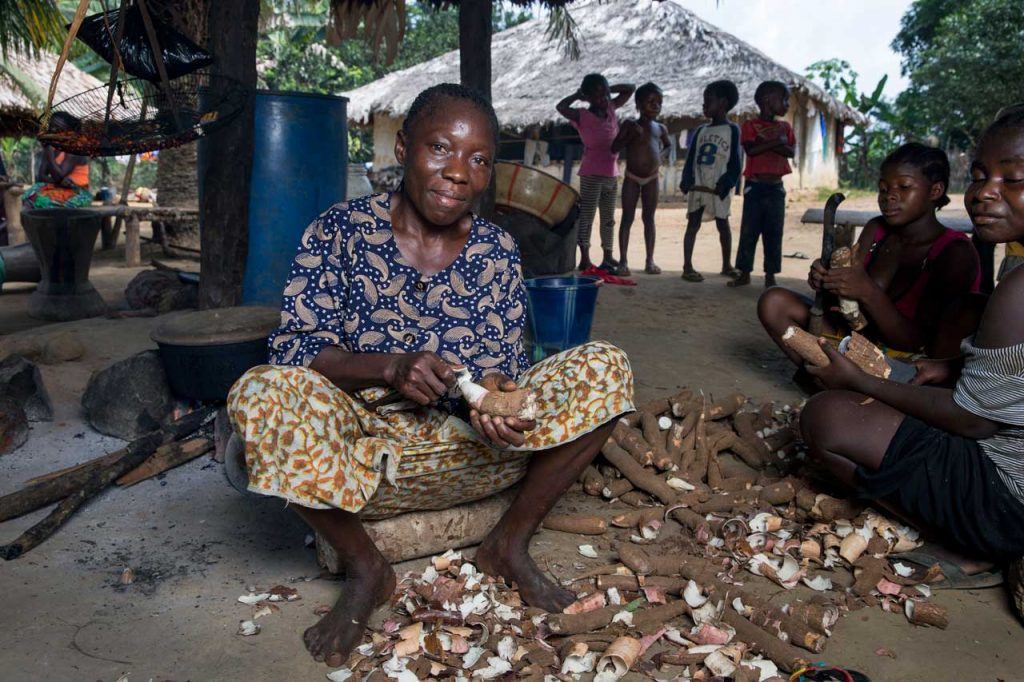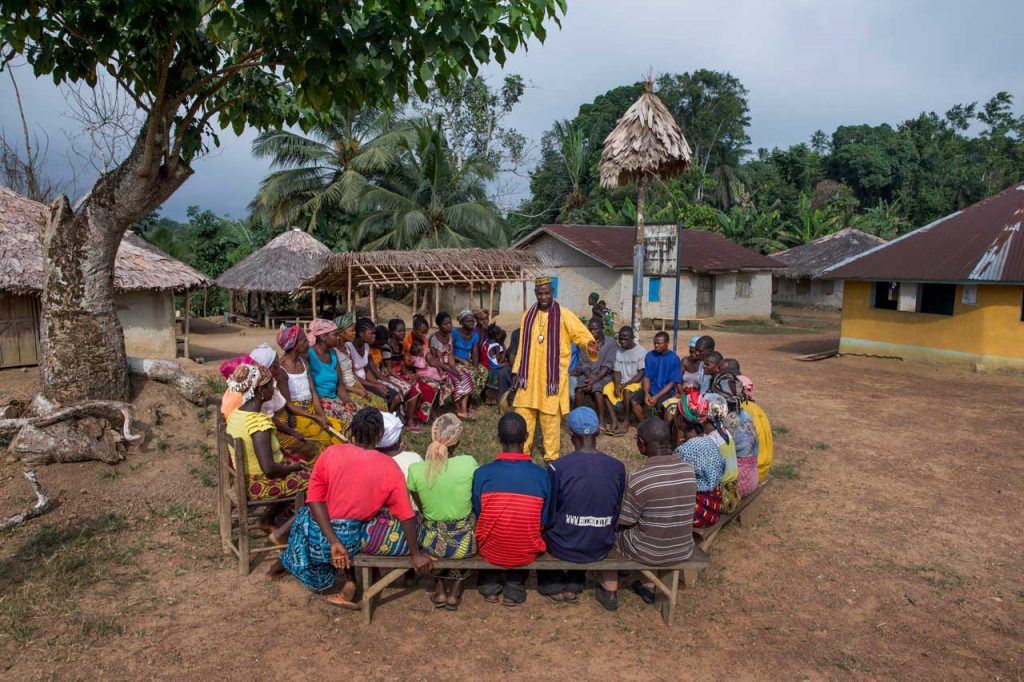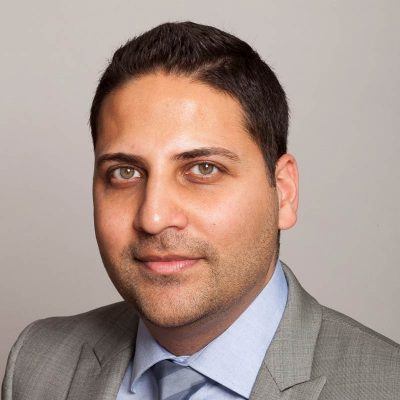A narrow window is quickly drawing shut for Liberia to enact a landmark law that would guarantee millions of its people the right to formally own the land they have long lived on and farmed. If the Liberian legislature fails to pass the bill by a deadline currently set for the end of this month, critics warn that local communities may face further destitution and renewed conflict in a country that has long been mired in poverty and emerging from decades of civil war.
Land: a lifeline
Liberia—a tiny West African country roughly the size of Tennessee—is home to millions of people who rely on rural lands for food, water and shelter.
“This land is life,” Blayah Town women’s leader Teresa Davis told AJWS earlier this year. “We are illiterate… so the only thing we depend on is the land. [We] farm… [to earn] money so that our children… can go to school and be somebody tomorrow.”

Although the country is among the poorest on the continent, it contains lush rainforests, abundant mineral deposits and sizeable off-shore oil reserves. Over the years, successive governments have handed land to foreign companies and investors for logging, mining and large-scale agricultural projects. Soon into the first term of her presidency in 2006, Ellen Johnson Sirleaf declared that Liberia was “open for business,” and leasing out land for profit became a core part of the country’s economic development strategy. Now, nearly half of Liberia’s land is promised to foreign companies and investors, according to news accounts.
While these projects promise prosperity for all Liberians, in reality, local people rarely reap any benefits—and in some cases, they suffer dire consequences. Rather than bolstering incomes and advancing opportunity for rural communities, these land deals have stripped them of their land and their rights. Miners and developers have bulldozed farmlands without the consent of locals, contaminated drinking water and evicted families from their ancestral homes.
When we ask Liberians what they need to defend their land and stop the harm being caused, most agree: a voice.
All too often, local communities are entirely shut out from important decisions that affect their futures. Payal Patel, senior program officer at American Jewish World Service, explains why: “The majority of land in Liberia is customarily held by rural communities who have lived on the same land for generations. However, the government doesn’t recognize their right to the land because the vast majority of communities and rural citizens do not hold formal land titles. That means they don’t have full decision making power in negotiations with the government or investors about how their land should, if at all, be used for commercial activities.”
A law to lend a voice
Liberia’s current legal landscape all too often robs local people of having a say and allows the government to grant concessions without concern for whom the projects will harm.
But a bill—the 2014 Land Rights Act—could bring the change they seek. Currently pending a vote, the act would require the government to recognize the customary land rights of countless rural communities to own the lands their ancestors have worked and lived on for generations. The bill would enable rural communities to obtain title deeds in their names for land they collectively own, giving them stronger footing to make decisions about how the land will be used.
The legislation would also introduce safeguards that aim to stop discrimination that currently prevents many women from using and owning community lands. For example, traditional inheritance practices often dictate that only men can inherit property. According to activists working on the bill, it contains provisions that guarantee that all Liberians have the right to own land.
AJWS grantees have been at the center of the struggle to defend land rights and push for the passage of the Land Rights Act. Sustainable Development Institute (SDI), a leading Liberian land rights organization founded in 2002, has filed formal complaints in international bodies against companies unfairly usurping local lands and has fought to strengthen language in the land rights bill. SDI has also collaborated with dozens of rural communities to help them demarcate and map their lands so that they will be well-positioned to apply for titles if and when the Land Rights Act passes.

Tensions over Territory
Land has long been a flashpoint in the country. Liberia’s two civil wars, in which hundreds of thousands lost their lives, were in part ignited by disputes over land and natural resources. At the turn of the century, Charles Taylor’s regime sparked fighting when it illegally acquired land for logging. And today, an estimated 90 percent of the civil cases and as many as 63 percent of violent conflicts in the country stem from land rights issues, according to news reports. In recent years, riots and violent clashes have erupted between local communities and large companies.
Given this mounting tension, activists warn that failure to enact this bill could potentially plunge Liberia back into conflict and reverse many of the country’s hard-won gains in recent years. “Failure to recognize the rights of millions of Liberians to their customary lands jeopardizes peace and security, and could fuel a slide back into the conflicts that devastated our country for decades,” read a statement signed in July 2016 by 18 civil society organizations, including AJWS grantees Foundation for community Initiative (FCI), Save my Future Foundation (SAMFU) and SDI.
An uncertain road ahead
While the bill enjoys support from President Sirleaf, who was awarded the Nobel Peace Prize in 2011 for her peacebuilding efforts in the country, it has languished for more than a year in the country’s legislature. And it faces stiff opposition from some quarters, including elites who stand to benefit from the land deals and politicians who have allegedly accepted bribes to further the interests of foreign companies.
Payal explains that one of the main reasons the bill has not been passed by the legislature is because “many government officials benefit financially from land concessions to companies. This Act, which would require communities to give their free, prior and informed consent about use of their land, would curb the ability of government and private sector stakeholders to engage in land grabbing with impunity.”
In 1948, Liberia became one of the first African countries to adopt the Universal Declaration of Human Rights, a blueprint that guarantees human rights for the world. Nearly 70 years on, the nation has been presented with a rare opportunity to recommit itself to realizing the human rights of its people and pave the way for lasting change. Let’s hope the government acts swiftly before this slim window of opportunity is sealed shut.
AJWS’s work in countries and communities changes over time, responding to the evolving needs of partner organizations and the people they serve. To learn where AJWS is supporting activists and social justice movements today, please see Where We Work.



